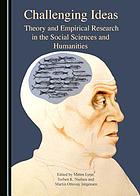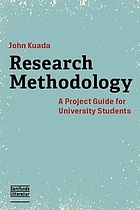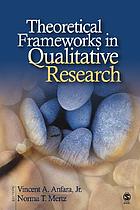Service Alert
Service Alert
The following are articles that may help you understand the importance of theory as a fundamental aspect of academic research.

Theories reflect previous study and analysis that has been conducted in your field. They propose explanations for phenomena that occur in an area of study. Over time, theories are reexamined, refined, and sometimes discarded in favor of new ones, always with the purpose of providing ever more accurate explanations for the dynamics that operate in our world.
The following quote, taken from John Kuada's book Research Methodology: A Project Guide for University Students, helps to explain the importance of theory when developing a research project:
“Theory provides the language, the concepts, and assumptions that help researchers to make sense of the phenomenon that they seek to investigate. It enables researchers to connect the issues they are investigating to the existing body of knowledge in the area” (Kuada, 2012, p. 64).
A theory can help researchers make predictions about the phenomena they are setting out to study. They can be informative in terms of determining what variables should be observed, as well as how data should be collected, analyzed, and interpreted on the way to presenting and justifying conclusions.
As a researcher working on a project, it is essential that you be aware of theories that have gained prominence in your field. Think of scholarship as an ongoing conversation. As people publish ideas and develop theories, they help shape that conversation. When you do research and present your findings and ideas, you are joining in on those discussions. You become a contributor. Therefore, it is good to have a sense of what has been said before.
Identify major theories in your field. Be conscious of the fundamental concepts that have guided scholars in your area, and be aware of emerging perspectives and trends. Try to identify a theoretical base from which you can develop your arguments. This will greatly strengthen your positions when the time comes to present your thesis.
 Challenging Ideas: Theory and Empirical Research in the Social Sciences and humanities
by
Edited by Maren Lytje, Torben K. Nielsen, and Martin Ottovay Jørgensen
Challenging Ideas: Theory and Empirical Research in the Social Sciences and humanities
by
Edited by Maren Lytje, Torben K. Nielsen, and Martin Ottovay Jørgensen
 Research Methodology
by
John Kuada
Research Methodology
by
John Kuada
 Theoretical Frameworks in Qualitative Research
by
editors, Vincent A. Anfara, Jr., Norma T. Mertz
Theoretical Frameworks in Qualitative Research
by
editors, Vincent A. Anfara, Jr., Norma T. Mertz
